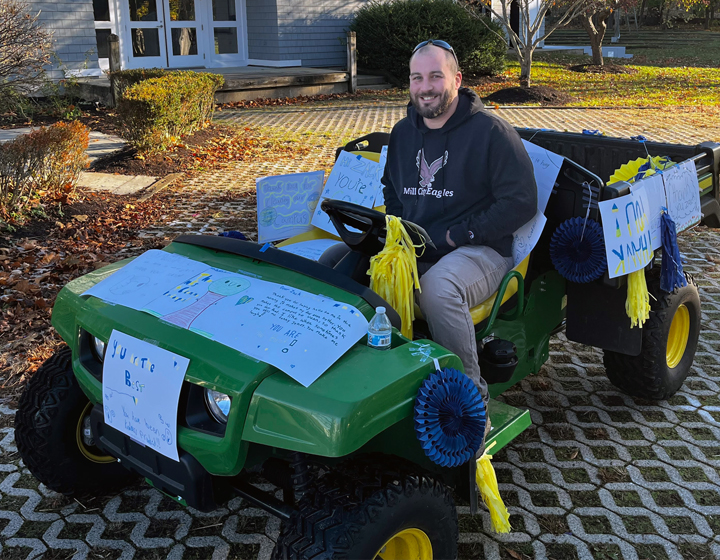
Written by Nia Jacobs, Director of Equity, Belonging, and Community Life
This week, the Kindness Prankers struck again. Few know who will be next or when with the joyful pranks happening at random. The reason why we have a Kindness Prankers group on campus, however, isn’t random at all.
Understanding place value or being able to analyze primary source documents are valuable skills. Offering an apology or being kind to others are valuable skills, too. All too often, however, schools distinguish between “academic skills” and “soft skills,” drawing a line that unfortunately doesn’t serve students well. We know full well that mastering a skill takes repeated exposure and regular practice; we would never ask a student to read musical notation without multiple opportunities to do so or without approaching it from different angles. But labeling some skills as “soft” can encourage us to draw a line between which skills schools should be explicitly teaching and which skills can simply be implicitly gathered along the way. If we don’t expect students to be able to analyze a primary source without exposure and practice, why should we expect that it would work any differently for kindness?
Cue the creation of the Kindness Prankers, the mysterious group that has recently emerged here at CRS. The goal given to the kids is simple – play harmless pranks of goodwill to uplift the community. And that goal, of course, is incredibly worthwhile. Who doesn’t want to be surprised by an explosion of leaf-shaped notes in their office, a decorated gator, or an anonymous nice note? And for the kids involved, who doesn’t want to wait for the signal that Zack has gone to a fake meeting in Founders Hall and then sneak out the side door of the school, cutting through the pouring rain to the barn to cover his gator in streamers and notes? The reasoning behind asking students to be a part of such a group is even broader.
By acting as Kindness Prankers, students are practicing and developing their kindness skills, in the same way that they then practiced their close-reading skills in the literacy block that followed their last prank. Students putting their kindness skills to work is certainly good for our community, but the kindness pranks aren’t just good for those who receive them. We all have the fundamental need to belong and a deep desire to feel connected to those around us. Taking part in the planning and execution of a prank connects the prankers to each other – a connection that will serve them well in their other collective engagements as a grade, academic or otherwise. Research also shows that being kind impacts the brain and body. On a biochemical level, when we show kindness to others, our brain releases chemicals such as serotonin and oxytocin, naturally produced chemicals shown to improve mood and focus and reduce stress and anxiety. Acts of kindness also produce endorphins and activate the areas of the brain connected to feelings of happiness and trust. Empathetic, enthusiastic, engaged kids who feel safe at school? Sounds like a recipe for days filled with the joy of childhood and academic excellence – the heart of the CRS mission.
And so, we wait for the Kindness Prankers to strike again. Who will be next?
